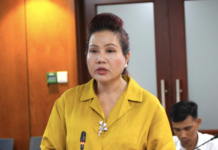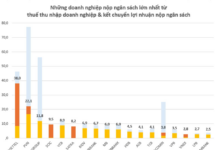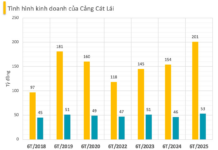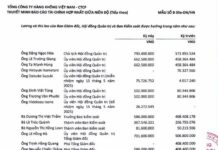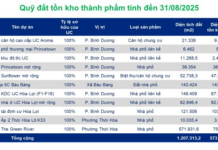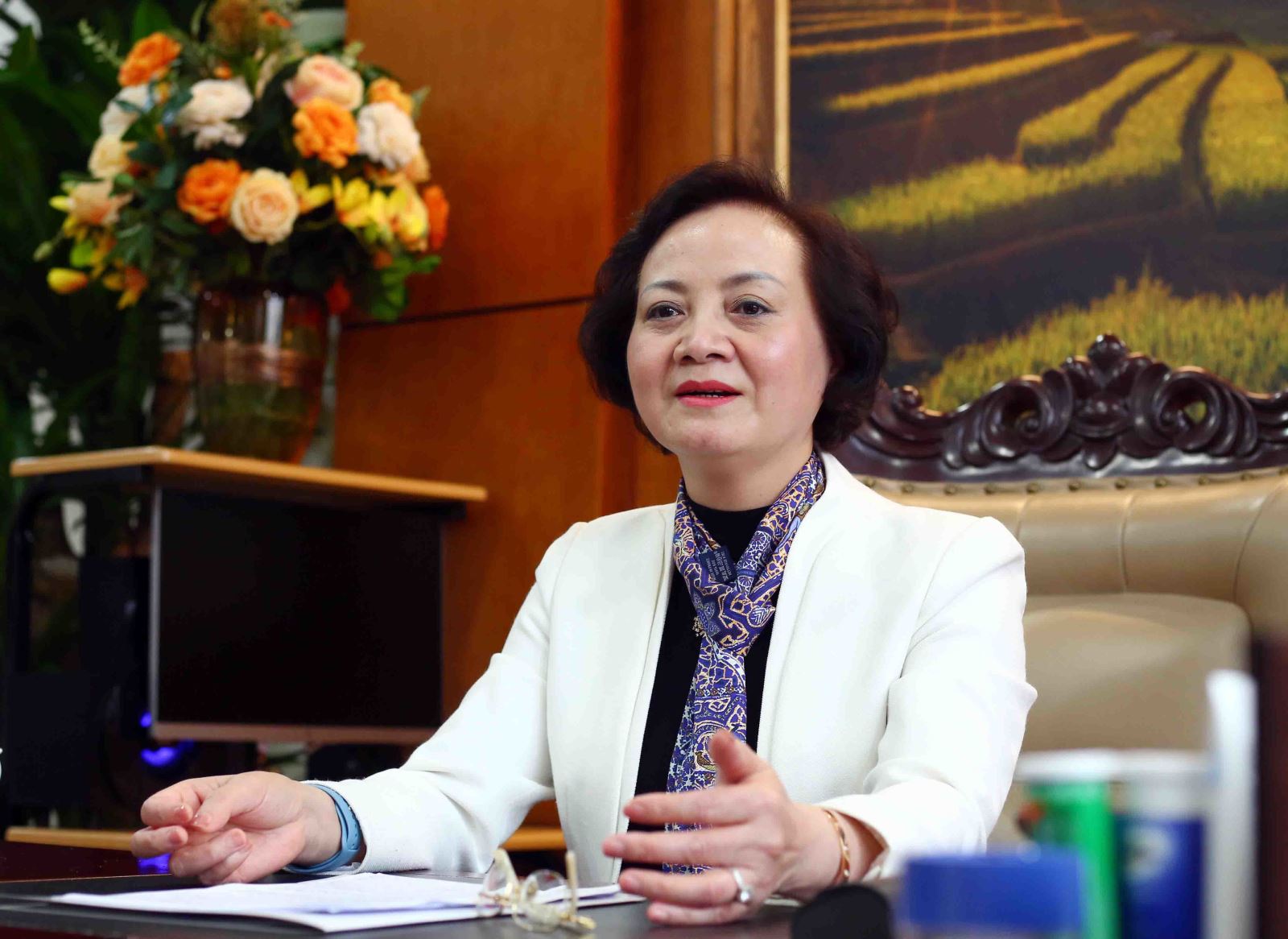
Minister of Interior Pham Thi Thanh Tra
Starting from July 1, the salary policy reform according to Resolution No. 27-NQ / TW of the 7th Central Conference (12th term) will be implemented.
Minister of Interior Pham Thi Thanh Tra said that a notable point when implementing salary reform is that the salaries of civil servants, especially those in the education and health sectors, will be higher than the general level of other civil servants and officials. This is because we are implementing salary policy reform associated with the implementation of the resolution on comprehensive fundamental education and training, healthcare development. Especially after the recent COVID-19 epidemic, it is necessary to pay more attention to improving the lives of teachers and doctors.
Therefore, when reforming salaries, the Ministry of Interior will coordinate with the Ministry of Education and Training and the Ministry of Health to propose competent authorities to pay attention to adjusting support to ensure that the salaries (including allowances) of teachers and doctors are increased in proportion to their requirements and job positions, ensuring the overall salary level for officials and civil servants while showing preferential treatment for these two sectors.
The average salary of officials and civil servants is expected to increase by about 30%
According to Minister of Interior Pham Thi Thanh Tra, under the salary reform plan, from July 1 onwards, the average salary of officials and civil servants is expected to increase by about 30% (including basic salary and allowances).
From 2025, this salary level will continue to be adjusted to increase by an average 7% per year.
Although we have not implemented salary reform in the past 3 years, we have adjusted the basic salary twice, increasing it by 29.5%. Therefore, when we total up from 2021 (the time when we expect to implement salary reform according to the spirit of Resolution No. 27-NQ / TW) until July 1, the salaries of officials and civil servants have increased quite significantly, about 60%. This number is not outstanding, but it is still a considerable increase compared to the average annual increase of 7% when salary reform has not been implemented.
This shows the great efforts of the Government, as well as the Ministry of Interior and other ministries and agencies in implementing the salary policy reform according to Resolution 27 of the 12th Central Conference; especially in the context of limited budget and economic difficulties after the impact of the COVID-19 pandemic.
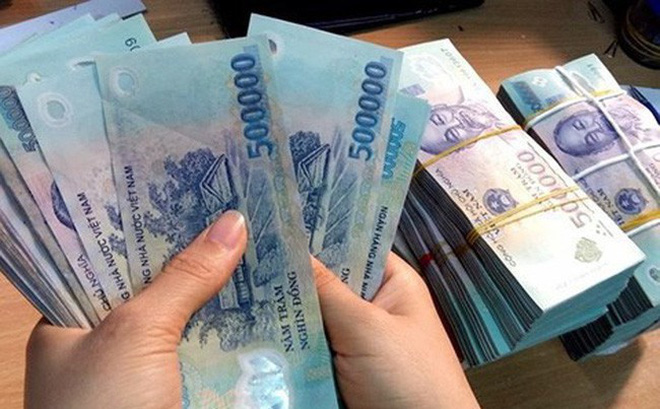
Consideration of retaining salary levels and income in specialized units
Regarding salary for officials and civil servants in specialized units, Minister Pham Thi Thanh Tra said that according to Resolution 27, we will abolish mechanisms and policies regarding special salaries and incomes.
Currently, there are 134,284 officials and civil servants in state management agencies applying financial mechanisms and special incomes (with additional salaries outside the general regime ranging from 0.66 to 2.43 times). This number accounts for about 6.78% of the total payroll of officials and civil servants nationwide.
When abolishing the mechanisms and policies of special salaries and incomes, they will receive a new salary (including allowances) which may be lower than before the salary reform. Therefore, to ensure their regime, the Ministry of Interior calculates to propose competent levels to consider retaining the levels of salary and specific income they are currently enjoying.
That means the new salary (including retention) of these officials and civil servants will not be lower than before the salary reform, in line with the spirit of Resolution No. 27, ensuring fairness between the subjects receiving salaries before and after the salary reform.
Minister Pham Thi Thanh Tra expects the officials and civil servants in specialized units to share the common direction of the Party in effectively implementing salary reform.
Efforts to complete job positions
Talking about the tasks assigned to the Ministry of Interior in 2024 that it must complete job positions in March, Minister Pham Thi Thanh Tra said that the Ministry of Interior has been coordinating with the Central Organizational Committee (the agency in charge of advising on building job positions in the political system), ministries, departments, and local authorities to timely guide and adjust related policies, and try to complete them before March 31 to build salary payment plans and apply new salary policies from July 1.
The Ministry of Interior is coordinating to guide administrative agencies and public career units to build and complete the job position system as a fundamental solution to implement the salary policy reform. This is a very heavy and most pressured task when implementing salary reform, but the Ministry of Interior will work with ministries, departments, and local authorities to make every effort to complete it according to the schedule assigned by the Government.
Issuing a system of regulations to use 10% of the basic salary fund for rewards
Sharing about the next steps to implement salary reform from July 1, Minister Pham Thi Thanh Tra said that the Politburo will consider and approve the principles and principles of the new salary policy of the entire political system in order to provide a basis for competent agencies to issue documents on salary regime for officials, civil servants, and armed forces from the central to the commune level, to be implemented from July 1 this year. The Ministry of Interior is actively advising on the draft decree on the new salary regime for the subjects under the jurisdiction of the Government.
In addition, the Ministry of Interior coordinates with the Central Organizational Committee to propose the Secretary of the Party Central Committee to issue a decision on the new salary regime for Party agencies, the Fatherland Front, and political-social organizations; cooperates with the National Assembly Standing Committee to issue a resolution on the new salary regime for the subjects under the management authority of the National Assembly Standing Committee.
The Ministry of Interior is advising competent levels to build a salary system consisting of a basic salary accounting for 70% and allowances accounting for 30% of the total salary fund.
In addition, there is an additional 10% of the basic salary fund for the heads of agencies and units to reward. At the same time, the heads have the authority to issue mechanisms to use regular expenditure for hiring experts, attracting and employing talented people in the public sector.
The Ministry of Interior will coordinate with the Ministry of Finance to issue a system of regulations as a basis for ministries, departments, and local authorities to use this budget to attract and employ talented people in the public sector.









